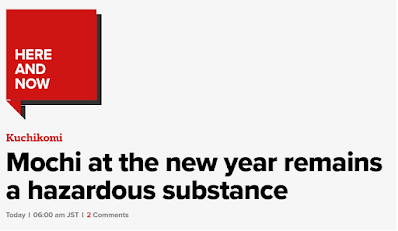Friday, January 20, 2023
Monday, January 16, 2023
South Korea considers nuclear weapons
South Korea considers nuclear weapons
President Yoon Suk Yeol of South Korea said that the country would weigh building its own nuclear weapons, or asking the U.S. to redeploy them on the Korean Peninsula, if North Korea’s nuclear threat worsens. |
His comments marked the first time that a South Korean president officially mentioned arming the country with nuclear weapons since the U.S. removed its nuclear munitions from the South in 1991. Surveys in recent years have shown that a majority of South Koreans support such a move. |
Yoon added that building nuclear weapons was not yet an official policy, and that South Korea would for now strengthen its alliance with the U.S. to discourage the North’s nuclear acceleration. |
Context: North Korea has vowed to expand its nuclear arsenal, and in 2022 the country tested more missiles than any previous year. The provocations have led some members of Yoon’s conservative People Power Party to call for Seoul to reconsider a nuclear option. |
History: South Korea embarked on a covert nuclear weapons program in the 1970s, but abandoned it after the U.S. promised to keep the South under its nuclear umbrella. South Korea is a signatory of the Nuclear Nonproliferation Treaty, which bans it from seeking nuclear weapons.
Thursday, January 05, 2023
Mochi is a Hazardous Substance
TOKYO
During the first three days of 2022, a total of 19 people in the greater Tokyo area received emergency treatment for mochi lodged in their throats, of whom four died. Once again confirming that mochi, a food made from glutinous rice, traditionally consumed at the new year and other celebratory occasions, can be a hazardous substance.
Broken down by age, 13 of the 19 receiving treatment were in their 80s, three in their 90s, and one each over age 100, in their 70s, and in their 30s, respectively. All four fatalities involved people in their 80s.
One 82-year old man was reportedly saved when a family member followed the instructions given over the telephone after they dialed the 119 emergency number.
As Nikkan Gendai (Dec 29) reports, two main factors can cause mochi to become lodged in the throat. One is that many seniors have missing teeth due to a variety of reasons, such as periodontal disease. What's more with advancing age their tongues become weaker and with it, the ability declines to transport chewed food to the throat. Moreover, elderly people's salivary glands tend to produce less saliva, leading to a decline in ability to swallow. If particles become lodged in the windpipe they can choke.
"Likewise, as people age their ability to dislodge food particles through reflex action weakens," said Dr Fujiki Ishihara, head of Kita-Shinagawa Fuji Clinic.
"The second factor is the nature of mochi itself," Dr Ishihara continues. "It is composed of alpha carbohydrates, but as the temperature cools it changes to beta carbohydrates, which have a different structure and are harder to digest. As the mochi's temperature cools inside the mouth the risk of its blocking the windpipe increases."
Problems can be avoided by breaking up mochi into smaller, more easily ingestible, pieces.
But Nikkan Gendai warns that consumption of mochi can also cause problems for people of any age. For one thing, not chewing it thoroughly before swallowing can result in its becoming impacted in the intestine.
"The problem occurs within one day of having consumed the mochi," Ishihara said. "It can not only block the intestine but also reduce the flow of digestive juices, leading to abdominal bloating, constipation and dehydration. In the worst cases it can cause serious dehydration or abnormal generation of electrolytes. The body can go into shock with loss of consciousness, and in extreme cases death can occur."
Neanwhile, another annoying impediment to new year's serenity has surfaced in the form of a report that many seasonal shimekazari decorations being sold in stores are not made in Japan.
A shimekazari is composed mostly of a shimenawa, a rope woven from hemp fiber or rice straw that is used for ritual purification in the Shinto religion. China has come to dominate the market for the new year's ornaments many people attach to their doors during the holiday period, this despite Shinto being a native Japanese religion.
In Yukan Fuji (Dec 29), Hidetoshi Tojo, representative director of the International Culture Promotional Association, grumbles that a majority of the shimekazari sold in supermarkets and convenience stores are woven from varieties of aquatic plants the Chinese call shuicao (literally water grass).
Tojo, 50, isn't just any Tojo, but the great-grandson of General Hideki Tojo, Japan's wartime prime minister from 1941 to 1944, who was found guilty of war crimes by the Tokyo Tribunal and executed by hanging in December 1948.
Tojo's allegations were confirmed by the unnamed president of a company that markets such decorations.
"Due to Japan's declining birth rate, these decorations have rapidly lost their regional flavor. And the craftsmen who make them are aging and dying out," he told Yukan Fuji.
As a result, he said, perhaps around 80% of the shimekazari now sold in Japan are imports from China.
Tojo, determined to adhere to the old traditions, has learned how to weave his own shimenawa from native Japanese straw.
"There's a difference between knowing the reasons behind a traditional custom or ritual and not knowing at all," Tojo asserted. "I even chose to study world history instead of Japanese history to avoid being confronted with my great-grandfather's name. But over the past 10 years, I've finally come to terms with his reputation. As a result, I now feel that to start making shimenawa on my own was a natural step."
© Japan TodayRead your way through Tokyo
Read your way through Tokyo
Hiromi Kawakami, one of Japan’s most popular contemporary novelists, travels with books that help her immerse herself in her destination. Now, Kawakami has suggestions for visitors to Tokyo, her own hometown. |
She suggests a 17th-century travelogue, “the record of a five-month, 1,500-mile journey on foot.” Historical detective fiction takes readers through the city’s 19th-century isolationist past. Works of psychological complexity probe the oppression women have faced, or the tensions between traditional Confucianism and European spirituality. And there’s even some short fiction in case of stubborn jet lag. |
“I start reading as soon as I know my departure date,” she writes, “and keep reading throughout my stay, remaining immersed in those novels even after I’ve returned home.” |
Here’s her book list for a visitor to Tokyo.
Wednesday, January 04, 2023
Japanese Superfoods today!
Super Delicious Superfoods! 
Yumi Komatsudaira grew up in her family's seaweed shop, snacking on the green treats from her family's health-based culinary business. Here's how she describes it:
"Growing up with my sisters, our first playground was our family’s seaweed factory. We would run around playing and grab handfuls of seaweed to snack on. Even as children, we all loved the smooth silky texture of seaweed. It was my favorite snack as a child, so a healthy diet has been a part of my life for as long as I can remember. All of these experiences inspired my career in cooking healthy food."
Now she shares the secrets of healthy eating that have guided the Japanese for ages in her beautiful new cookbook, Japanese Superfoods. In the book Yumi combines her extensive expertise with ocean vegetables and Japanese cooking to show you how to create simple, delicious, and super-healthy Japanese-style meals at home! You'll find power-packed, super-nutritive recipes like:
- Red Quinoa Salad with Hijiki and Kabocha
- My Grandma's Scattered Sushi Bowl
- Napa Cabbage, Potato and Bacon Miso Soup
- Edamame Hummus
- Yakitori Grilled Chicken Wings
- Okinawa-Style Braised Kombu and Pork
- Matcha Cheesecake
- Kombu Smoothies with Lemon Yogurt and Blueberries
Check out some of the interior photos below, and order a copy of Japanese Superfoods today!

















